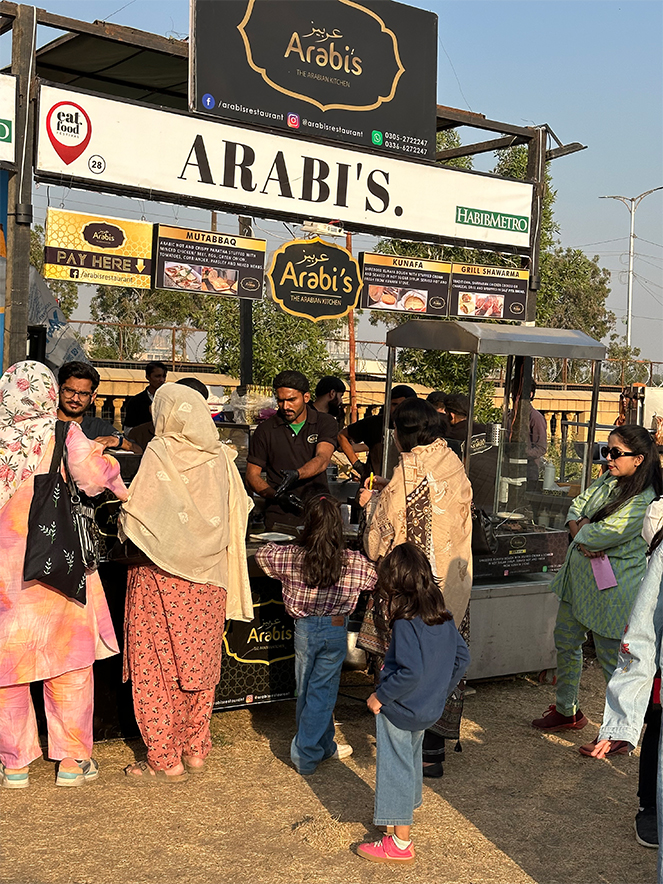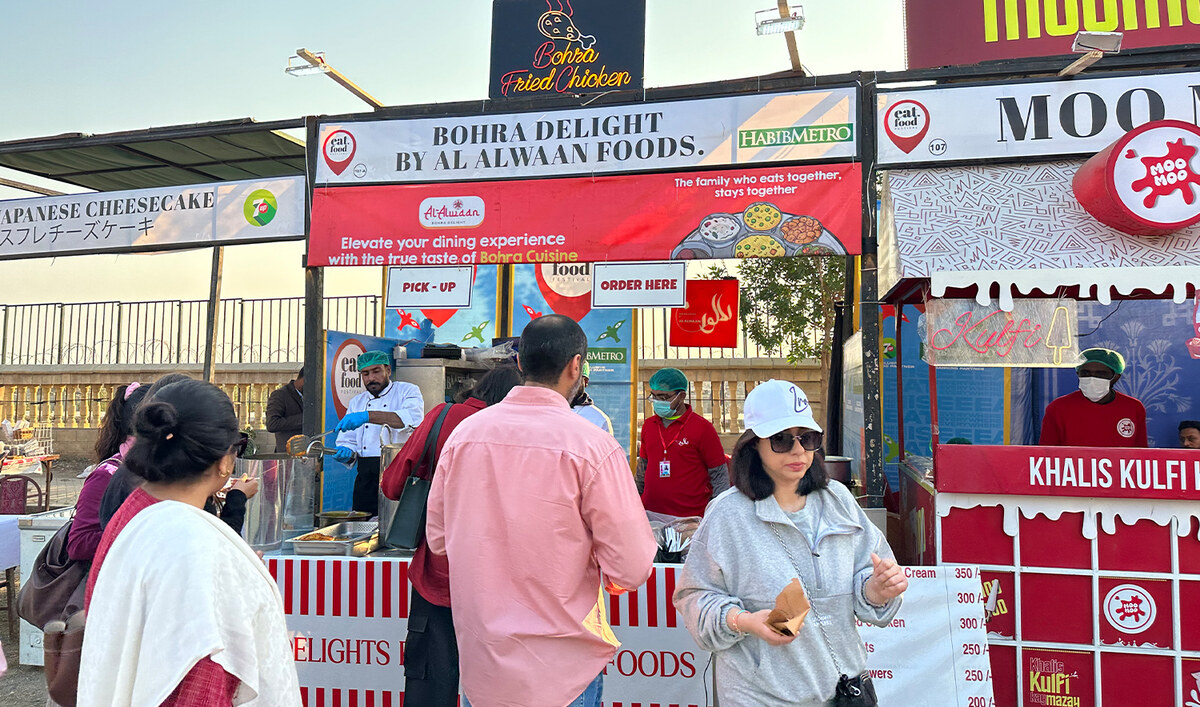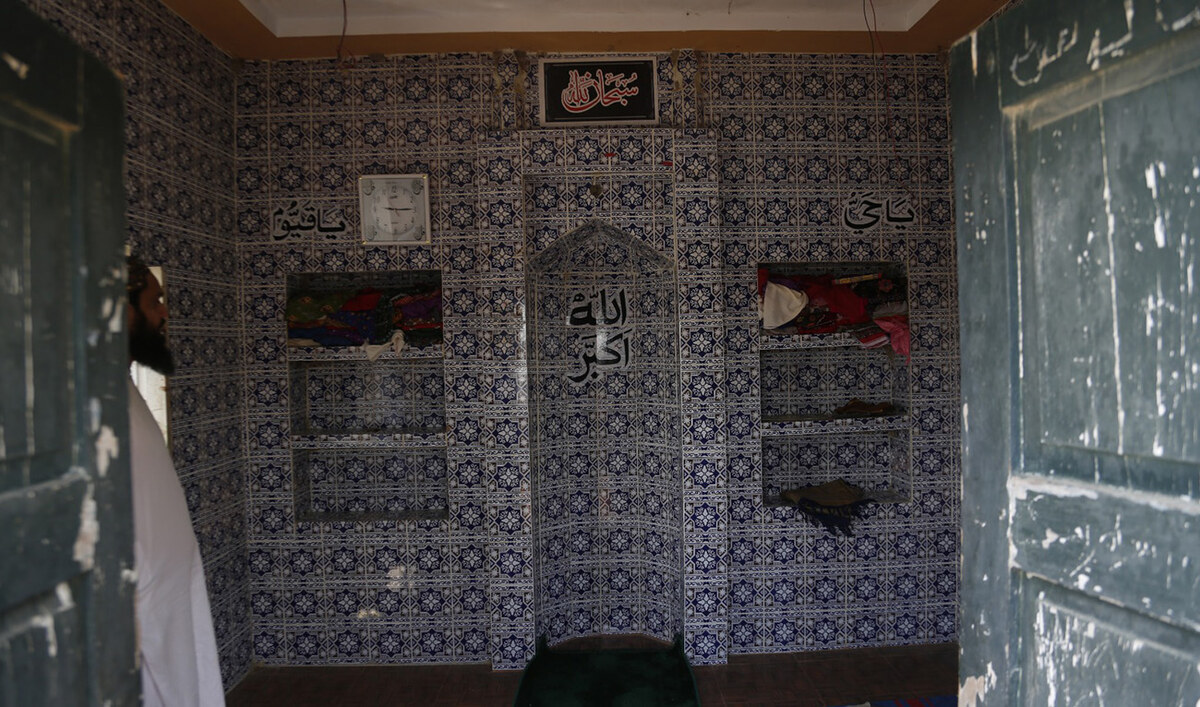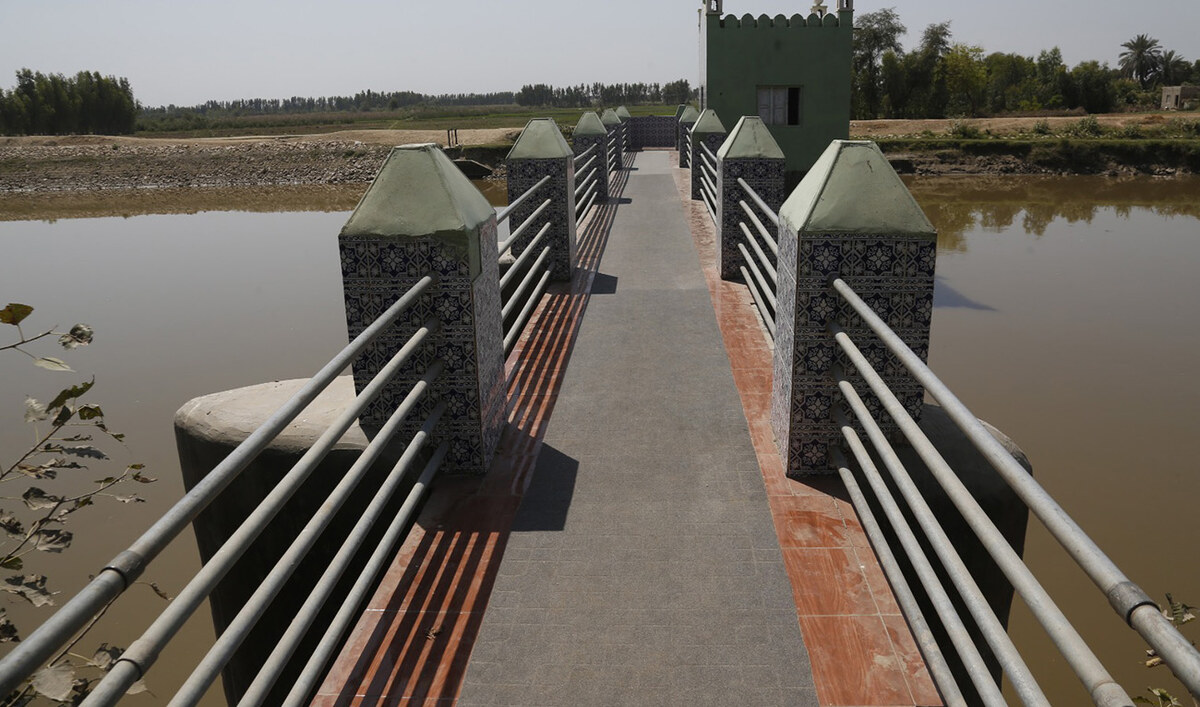KARACHI: The air at Beach View Park in Pakistan’s southern port city of Karachi was filled with the enticing aroma of Sicilian slow-cooked beef, Arabic Paratha, beefy Chapli Kebabs from Peshawar and mouthwatering Chicken Tikka.
Welcome to Karachi Eat 2025, Pakistan’s biggest annual food festival. The three-day festival has been taking place in the ‘City of Lights’ every year in January since 2014. This year’s festival, set to conclude today, Sunday, also features hundreds of eateries and offers a variety of cuisines to visitors.
According to Ticket Wala, a platform that sells tickets for entertainment events, chefs from Indonesia, Singapore, Turkiye, Romania, Malaysia, France and other countries visited Karachi for the festival.
Sarah Aziz, a food stall owner passionately selling Sicilian cuisine, told Arab News she wanted to bring international cuisine to Pakistanis who could not travel to countries around the world.
“We want to bring the flavors out there for everyone who can’t go to Sicily, Portugal, or Malta,” she said. “We want to bring the food here, so they can also cherish and enjoy it.”
Aziz said she wanted to “convert” her cuisine, which was for a niche market, so that many people in Pakistan can enjoy and develop a taste for it.
“So, the menu is basically based on slow-cooked beef with lamb fat,” she said. “We are doing handmade pesto with garlic paste.”
For others like Muhammad Ismail, 28, the festival provided an opportunity for him to indulge in his love for Arabic cuisine.
“I just had Arabic Paratha here,” Ismail, a banker by profession, told Arab News. “I have it there [Saudi Arabia] too but this one tastes exactly like the authentic one you get in Saudi Arabia, and it’s absolutely amazing,” he said.

Visitors gather around "Arabi's" food stall at the Karachi Eat festival in Karachi, Pakistan, on January 11, 2025. (AN photo)
Shaikh Ameen, the owner of Arabi’s, a restaurant in Karachi that offers Arabic cuisine, said there was a growing appreciation for Middle Eastern cuisine in Pakistan.
“We offer authentic shawarma, mutabbaq and kunafa, so we’re serving these authentic dishes here,” Ameen said.
“There are quite a few people from the Middle East, especially families, who are familiar with this food, and they really enjoy it. Moreover, people’s tastes have evolved, and they really like these flavors now.”
Kashaf Noman, a textile designer in her 20s, expressed her enthusiasm for the festival.
“I am loving it, it’s very really organized and I have many more options here than at other festivals, so it’s really nice, I’m having fun,” she said.
Noman said she had relished fish gyozas, waffles and a Mexican drink.
CHAPLI KEBABS AND BOHRA CUISINES
While the festival featured a plethora of international flavors, it also celebrated local specialties like the Chapli Kebab, Bohra cuisines and dishes from Pakistan’s northern mountainous regions.
Bohra cuisine comprises of food items made famous by the Bohra community, a Shiite Muslim sect.

Visitors gather around "Bohra Delights" food stall at the Karachi Eat festival in Karachi, Pakistan, on January 11, 2025. (AN photo)
The festival also provided a platform for lesser-known regional cuisines to showcase their items. Zaeem Ud Din, 25, a student and stall owner, introduced the traditional Chapshoro dish from the northern Gilgit-Baltistan region.
“Our Chapshoro is not spicy; people’s taste buds aren’t the same but we still wanted to bring a tradition with us,” he said.
“We aimed to introduce something unique from Gilgit-Baltistan as not everyone can travel there.”
There were also some outlets from Pakistan’s second-largest city Lahore, which enjoys a food rivalry with Karachi.
Despite the general perception that Lahore’s food is inferior to that of Karachi in terms of taste, Lahore-based food stalls attracted a significant crowd at the festival.
“If someone says you can’t find anything like Karachi in Lahore, they should definitely try Arif Chatkhara,” Mirza Zaidan Baig, owner of the popular Lahore eatery “Arif Chatkhara,” told Arab News.
And for those who did not like Arif Chatkhara’s sumptuous items, Baig had a generous offer.
“If they don’t like it, we will send them back with double the amount they paid,” he said.






















